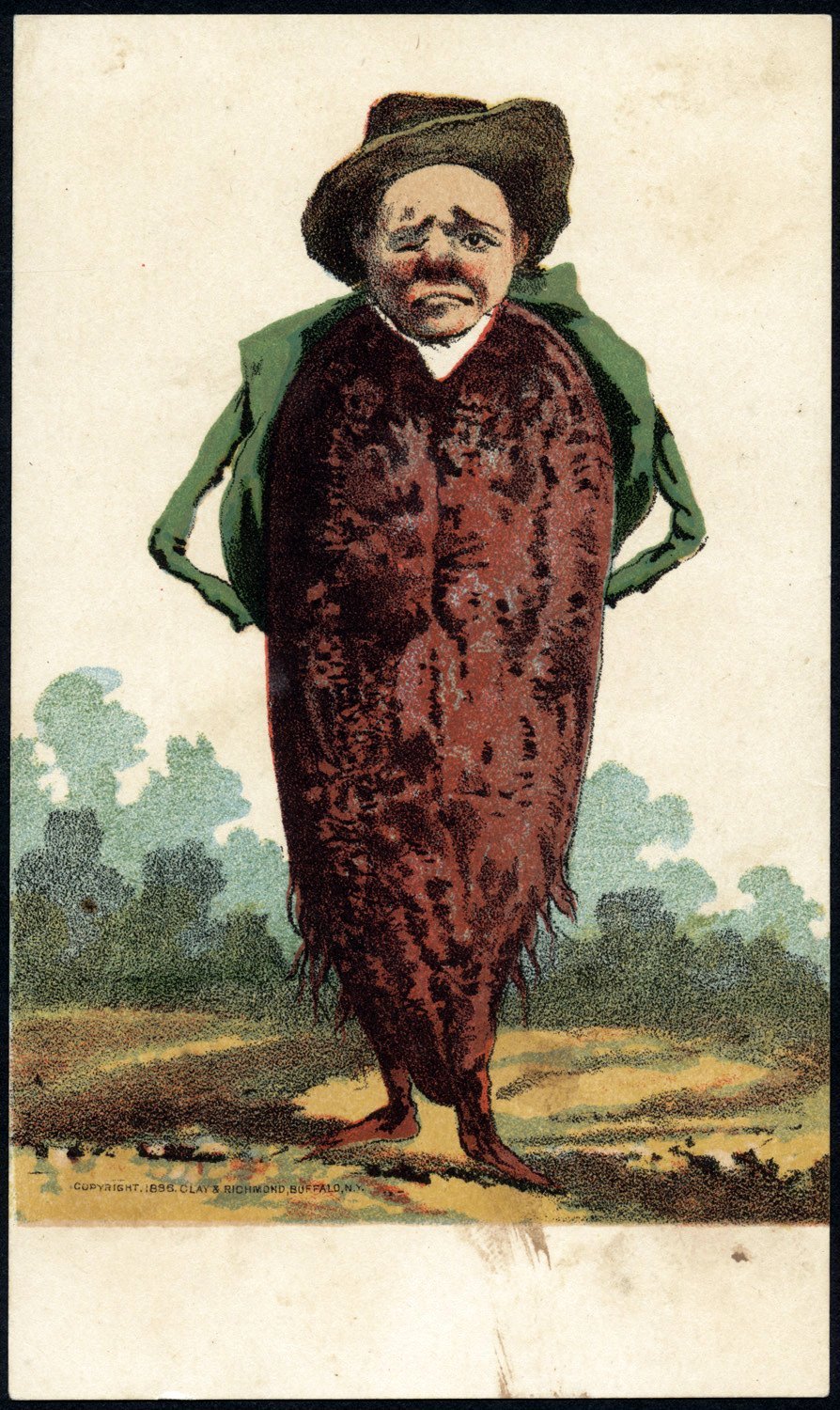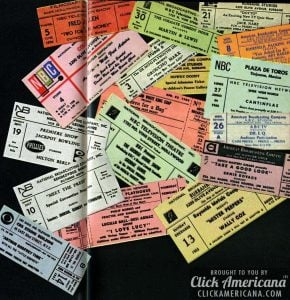The cards were essentially an early form of advertising for a business or trade — and while many times the product depicted was what was being advertised, as often as not, the real purpose of the picture on the card was to amuse people and to get some attention for a brand.
In that sense, some of the weirder ones could almost be considered akin to viral posts of today: offbeat images that exist solely to build buzz.
Trade cards were very popular during the Victorian era, and commonly depicted a variety of items and scenes.
For instance, one might have a drawing of a man on a camel coupled with a tagline for stove polish; another could show a newlywed couple admiring their new hand-cranked laundry wringer; while a different type might have — yes — anthropomorphized veggies. Check out a few of them below!
People as vegetables: Man’s head on a carrot body

Drumhead cabbage: A weird antique trading card from the 1880s
“Do not beat your head, eat Sauerkraut, have a bad stomach and feel downcast, but buy a STAR FEED MILL and feel well forever after.”

Pea pod people – Antique anthropomorphic vegetables (1885)

Some root vegetable for Alfred Wright’s perfumery (c1880s)
I mean come on — doesn’t this make you want to buy some perfume?

Man with a potato head: Weird stuff from 1886
AND OF COURSE: The original Mr Potato Head & Mrs Potato Head toys in the 1950s were pretty creepy, so see how they changed over the years

People as vegetables: Woman’s head with a squash body

Old trade card with an odd turnip couple (1800s)

Bonus image of a man as a fruit: A human head on a watermelon

REMEMBER THESE? Vintage Wacky Packages: 50 Wacky Packs cards for candy, cereal and more (1970s)
Vintage trade cards offer a broad range (1975)
Article by Lita Solis-Cohen and Bob Schwabach, Knight Newspapers
Of all those specialized fields of collecting that require the nose of a bloodhound and the diligence of an ant, none offers a broader range than collecting old trading cards.
They were the prime advertising medium until the 1890s, when they were replaced by magazine advertising.
The earliest American trade cards are printed notices of goods for sale, sometimes with woodcut or copper engraved illustrations, and are almost impossible to find now.
Some are large — some almost poster size — and if a print dealer comes across one engraved by James Smithers, Henry Dawkins or Nathaniel Hurd, he can quickly sell it to one of several institutions.
Lithographed trade cards of the second quarter of the nineteenth century are not much easier to come by.

Large ones showing a factory or store or the products in rich colors bring several hundred dollars apiece. The most elaborate are lithographers’ own trade cards, made to show off their skill.
In 1876, thousands of trade cards were passed out at the Centennial in Philadelphia, and many people collected albums of them.
Cheaper lithographic processes developed by then had made possible the production of stock cards with bouquets, animals and scenic views, all with a blank space for the merchant’s name.

The famous lithographers Currier & Ives turned out a couple hundred designs. In “The American Card Catalogue,” the standard guide in the field, 3-by-5-inch Currier Ives cards are listed at $5 to $8, a few rare ones at $20 (1960 prices).
Higher priced and prettier than Currier & Ives are the clipper ship trade cards advertising fast runs from New York and Boston to the California gold fields. A few rare ones advertise runs to Hawaii and Australia.
Nesbitt of New York was the principal printer of these, from 1850 to 1870. About 900 different cards featuring some 400 ships are known and sell for $75 to $300.
People as vegetables: Man’s head on an ear of corn

Weird old anthropomorphic corn woman postcard (1880s)

A weird Victorian trade card with a man’s head on a sweet potato body

People as vegetables: Man’s head on a turnip body

NOW SEE THIS: 150 Victorian Christmas cards: Antique holiday greetings from the 1800s range from quaint to extremely weird




















3 Responses
They walk the fine line between horrifying & hillarious. I’d love to see some RPG on Steam model mobs after these. lol
Aren’t these cards in public domain? I purchased several at an antique store over 40 years ago.
Can I print my cards in a single junk journal without selling copies of each of them individually?
Published items this old are in the public domain, so have fun! You can find more here: https://www.loc.gov/item/2013646764/